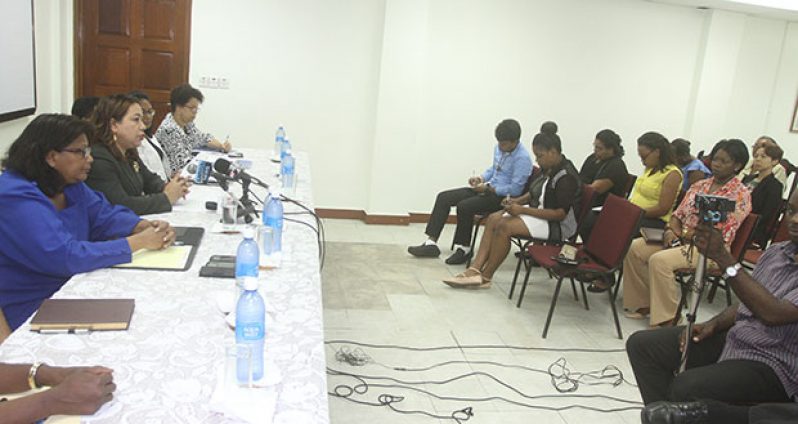GUYANA’S economic status graduation to a middle income country has seen concerns raised by Foreign Affairs Minister, Carolyn Rodrigues Birkett who believes that such a move is premature.
At a press conference at the Institute of Foreign Services, Shivnarine Chanderpaul Drive, Birkett noted that graduation comes as a concern to some countries. “Basically, we are graduated to middle income countries and because of that, we will lose certain concessionary financing; and in some cases; ODA [Official Development Assistance] as well.”
“In terms of concessionary financing, if you receive concessionary financing not as a middle-income country, it would mean that you would lose some” of that financing, Birkett explained.
Guyana’s Foreign Minister expressed similar concerns shared by her colleagues who have deemed the move as worrying. “What we are saying is that this can set us back in terms of our development because some of our countries need time.”
“Guyana has to now pay for vaccines at a higher cost because of this graduation, and that would certainly affect what we’re able to do in the health sector, as far as vaccines are concerned,” the Minister added, as she explained the effects of graduation on Guyana’s health sector.
On another note, Birkett is concerned that Guyana’s elevation would see the country being mandated to pay increases in contributions to international organisations. “Our contributions to organisations would automatically increase.”
She noted that there have already been some notices laid to this country which demand increased payments. This, Birkett added, continues to be a concern for CARICOM countries. The Minister has proposed that a “Vulnerability Index” be added to Gross Domestic Product (GDP) as a means of addressing the issue at hand.
Birkett’s contention is based on the premise that CARICOM includes mostly “low lying states… [which] are more susceptible to natural disasters, to flooding, and we know this very well in Guyana.”
She explained that other countries have found themselves at the mercy of hurricanes for which ‘one hurricane can wipe out the equivalent of your entire GDP.”
The Minister called on international financial institutions to “add the Vulnerability Index to GDP in order to know the true situation of our countries.”
She said this as she recalled that at the recently concluded SIDS meeting in Samoa, the World Bank, International Monetary Fund (IMF) and the United Nations Development Programme (UNDP) had agreed to have some level of consensus at the G20 meeting of the World’s 20 major economies to “hear our plea and also to make the necessary changes.”
Minister Birkett reassured Guyana’s commitment to continue advocating for the reform of the graduation assessment by including the Vulnerability Index.
On another note, Birkett stated that efforts toward the achievement of the newly drafted Sustainable Development Goals (SDGs) which follows the process of the 2015 Millennium Development Goals (MDGs) would be affected by this graduation.
She plugged a link between graduation and the means of goal implementation with graduated countries having to fend for themselves, with no concessionary financing.
Finance Minister, Dr. Ashni Singh had made similar calls at the launch of Guyana’s Maternal Health Acceleration Framework, where he called on developed countries to honour an obligation made four decades ago to donate 0.7% of their Gross National Income to Official Development Assistance to developing countries.
To this end, Minister Birkett questioned how the remaining MDGs and SDGs could be achieved with the threat of cutting concessionary financing and similarly the refusal of developed countries to respect their obligations.





.jpg)








